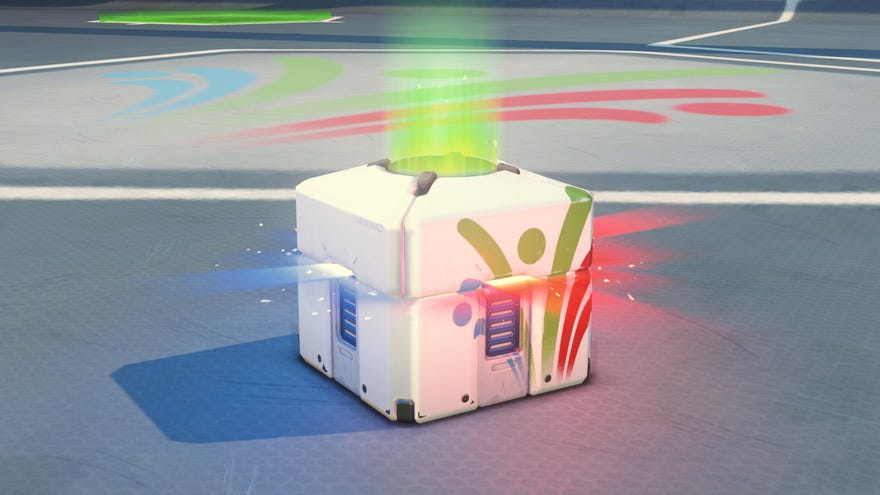NHS boss accuses loot boxes of pushing "under the radar" gambling at kids
Here we go, again.
Buckle up, 2020. It's time to wade neck-deep back into the never-ending loot box discourse. The latest contributor to the debate around videogame mystery boxes is NHS Mental health director Claire Murdoch, who joins the growing chorus of officials calling for surprise mechanics to be regulated under UK gambling laws. In a report released earlier today, Murdoch condemned the industry of pushing young people into ‘under the radar’ gambling, and believes games that target loot boxes at kids should be removed from sale outright.
The English bit of the NHS are busy setting up addiction clinics for game-addled kids, but Murdoch believes they can't fight against addiction alone. She called on the industry to "crack down on gambling addiction risks" by stripping their games of loot boxes and their ilk.
"Frankly no company should be setting kids up for addiction by teaching them to gamble on the content of these loot boxes," said Murdoch. "No firm should sell to children loot box games with this element of chance, so yes those sales should end."
The UK Gambling Commission currently operates under the idea that loot boxes aren't gambling, as there are no direct ways to extract real-world money from prizes. This new NHS report notes, however, that this hasn't stopped third-party sites from offering up "gaming accounts and rare items".
Murdoch joins the independent Children’s Commissioner for England in asking the Gambling Commission to perhaps reconsider. Regardless of whether or not there's a cash benefit to cracking open a crate, the Children's Commissioner reckoned their argument "fails to recognise the value placed by children on winning certain items, even when those items cannot be cashed out for money."
Fair dos, really. Even I, tight as I am with my bank account, have been tempted into picking up a few Overwatch boxes from time to time. The report notes an investigation that found examples of less restrained spending, including "a 16-year-old paying £2,000 on a basketball game", and a "15-year-old losing £1,000 in a shooting game."
Young folks aren't being tempted by crisp £20 notes, but a swish gun skin, playable character or dance move does the job well enough.
Murdoch calls on an outright ban on the sale of games that encourage children to gamble, while parents should also be made more aware of the risks of in-game spending. Loot boxes, on the whole, could stay under severe restrictions: the NHS chief believes games should introduce "fair and realistic" spending limits, and the odds of receiving any given prize should be made visible before purchasing any loot box.
In September, the UK Parliament's Digital, Culture, Media and Sport Committee also called current gambling laws insufficient for the current digital reality.
Granted, I don't expect Parliament to follow up on that anytime soon. Not with you-know-what coming up.

